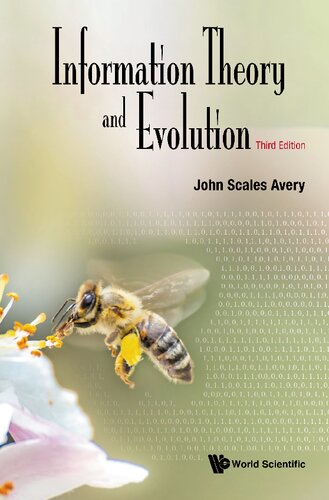

Most ebook files are in PDF format, so you can easily read them using various software such as Foxit Reader or directly on the Google Chrome browser.
Some ebook files are released by publishers in other formats such as .awz, .mobi, .epub, .fb2, etc. You may need to install specific software to read these formats on mobile/PC, such as Calibre.
Please read the tutorial at this link: https://ebookbell.com/faq
We offer FREE conversion to the popular formats you request; however, this may take some time. Therefore, right after payment, please email us, and we will try to provide the service as quickly as possible.
For some exceptional file formats or broken links (if any), please refrain from opening any disputes. Instead, email us first, and we will try to assist within a maximum of 6 hours.
EbookBell Team

4.1
100 reviewsThis highly interdisciplinary book discusses the phenomenon of life, including its origin and evolution, against the background of thermodynamics, statistical mechanics, and information theory. Among the central themes is the seeming contradiction between the second law of thermodynamics and the high degree of order and complexity produced by living systems. As the author shows, this paradox has its resolution in the information content of the Gibbs free energy that enters the biosphere from outside sources. Another focus of the book is the role of information in human cultural evolution, which is also discussed with the origin of human linguistic abilities. One of the final chapters addresses the merging of information technology and biotechnology into a new discipline — bioinformation technology.This third edition has been updated to reflect the latest scientific and technological advances. Professor Avery makes use of the perspectives of famous scholars such as Professor Noam Chomsky and Nobel Laureates John O'Keefe, May-Britt Moser and Edward Moser to cast light on the evolution of human languages. The mechanism of cell differentiation, and the rapid acceleration of information technology in the 21st century are also discussed.With various research disciplines becoming increasingly interrelated today, Information Theory and Evolution provides nuance to the conversation between bioinformatics, information technology, and pertinent social-political issues. This book is a welcome voice in working on the future challenges that humanity will face as a result of scientific and technological progress.
Contents:
Readership: General readers interested in the intersection between information theory and evolution, undergraduates of physics and biology, researchers in bioinformatics.